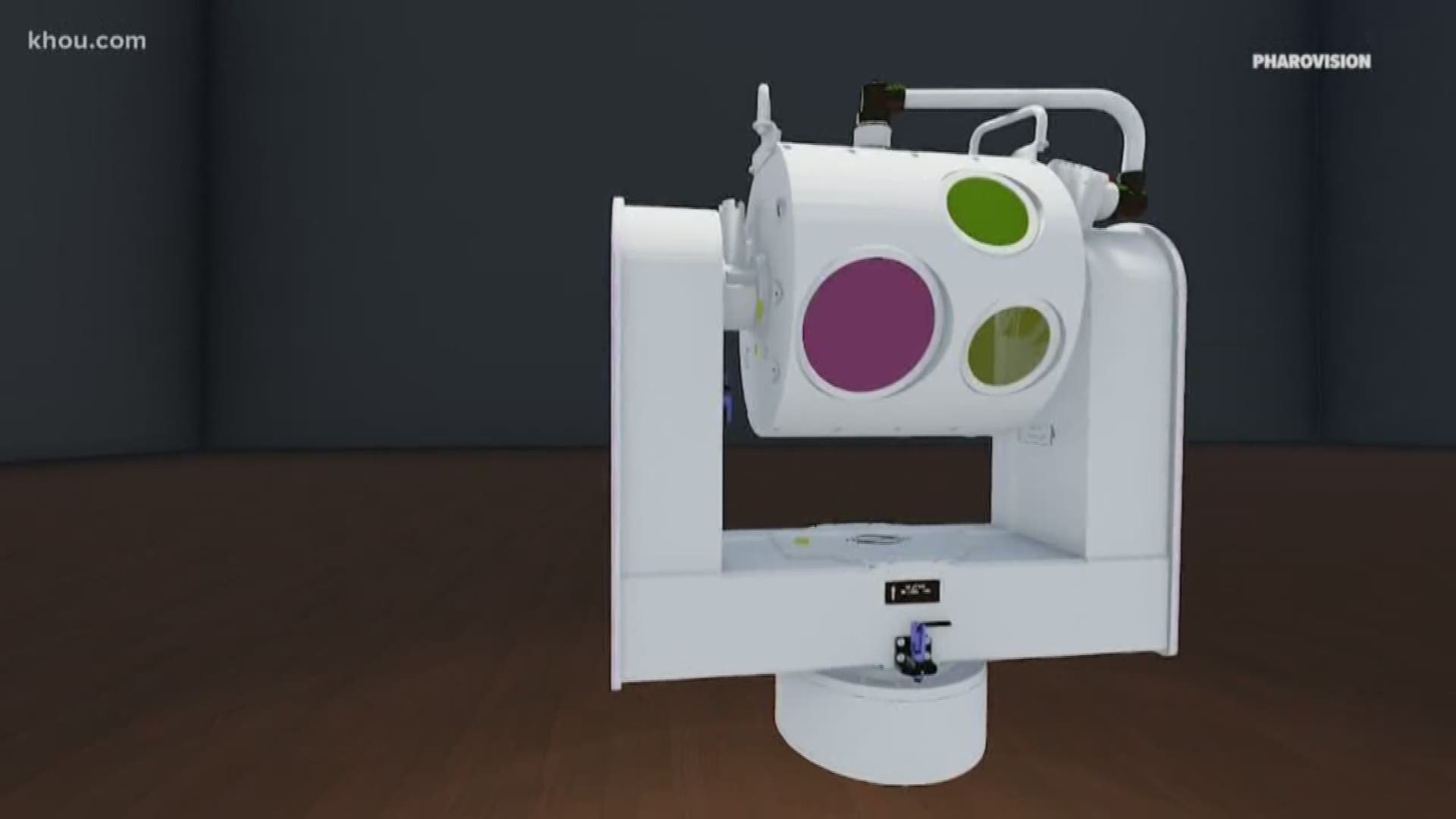HOUSTON — There are well over a million drones flying around the United States today.
The FAA expects that number to triple in the next three years. As the drone industry grows, so do the dangers that come with it. There have been drone attacks on world leaders and close calls with commercial planes.
A company based outside Houston developed technology that spots and track drones from several miles away.
“We have hundreds of our payloads throughout the world being used by U.S. Special Forces, Border Patrol, Air Force, and the Israeli Ministry of Defense,” said Dr. Nicholas Carter, the CEO of Pharovision.
Carter says their infrared detection system scans the skies and automatically alerts when it sees movement. It can detect anything from birds to drones.
The system is currently protecting Ben Gurion Airport in Tel Aviv, Israel.
“We can also show you the user of the drone, where the home point of the drone is, and where the person controlling it is stationed,” Carter said.
What happens next depends on the user.
The system can hack the drone and take over controls. It can also send attack drones to knock the threat out of the sky.
“One of our partners is Rafael, one of the largest arms manufacturers in the world. They allow us to sell a very massive laser that goes along with it. We can literally melt the drone out of the sky,” Carter said.
Civilian airports aren’t using such drastic measures, especially since their biggest threat is typically wildlife.
Dallas Love Field Airport bought the technology in 2017 after seeing a rise in airplane bird strikes. Bird strikes caused a commercial plane in New York City to lose engine power in 2009. Pilots made an emergency landing in the Hudson River, allowing all 155 passengers to survive. The accident came to be known as the “Miracle on the Hudson."
“You can stop the planes, but you can’t stop the birds, so it basically gives you a warning light or a traffic light. A traffic signal,” Carter said.
Pharovision is based in Montgomery County, but neither of the Houston airports have bought into the technology at this point.
Now the company is starting to market to other venues, like football stadiums and prisons.
ALSO POPULAR ON KHOU.COM

